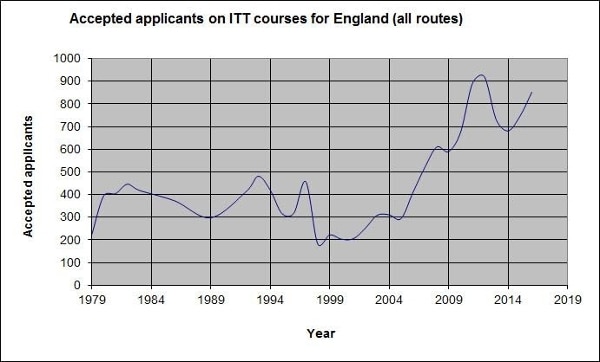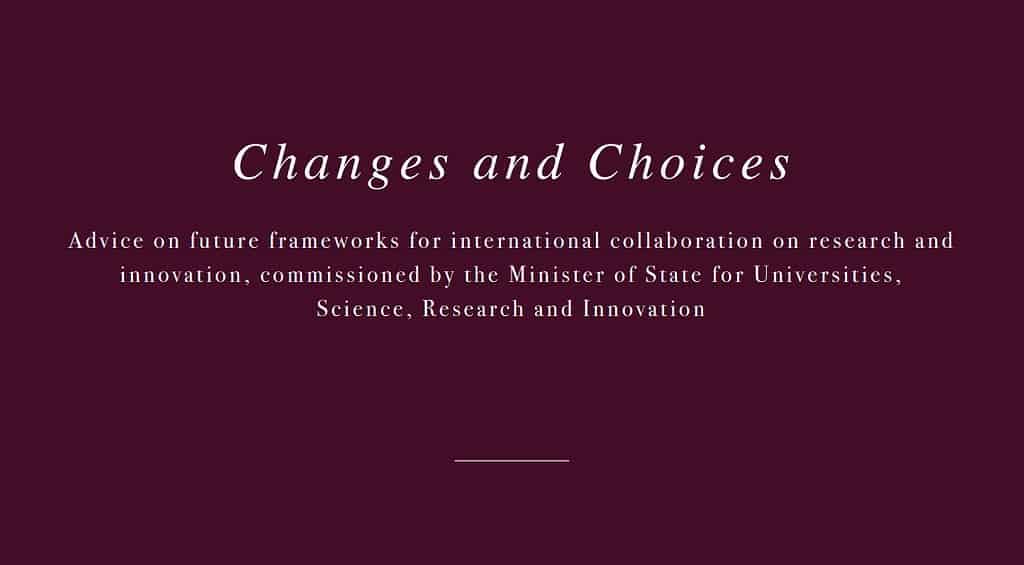Charles Tracy, the Head of Education at the Institute of Physics, gives his response to the latest report on the recruitment and retention of teachers from the House of Commons Education Select Committee
Select Committee report on recruitment and retention of teachers is welcome – but must be acted on
06 Mar 2017
Last week, the Education Select Committee produced its helpful report on the recruitment and retention of teachers.
It expressly values teachers, and highlights the need to address the loss of good ones by reducing their workload (especially outside the classroom), collecting better evidence, and using that evidence to develop policies and projects.
The committee began collecting evidence in late 2015 and we submitted written evidence in November along with our partners, the Association of Science Education, the Royal Society, the Royal Society of Biology and the Royal Society of Chemistry. That evidence is based on many years of collecting data, working with teachers and teacher trainers, running pilot projects and developing a detailed knowledge of the landscape and how to improve it. As a result, we were asked to give evidence to the committee in person, some of which found its way into the report.
Regarding teacher shortages, physics is a bellwether subject – it’s always required special effort to recruit physics teachers. Unfortunately, the number of teachers in the system was allowed to decline catastrophically from the late 80s. The average number recruited was about 350 a year –about half of that needed.
This chronic under-recruitment resulted in a scandalous shortage of physics teachers in the workforce. The Smithers reports showed that the number of physics specialists in the system was around 5,800 – at least 4,000 below what it needed to be. The science teaching workforce comprised just 19% physicists – when you would expect it to be close to 33%. At the time, there were around 500 secondary schools without a physics specialist.
In the 2000s we highlighted those shortages and stressed the importance of recognising and recruiting subject-specialist teachers. Specifically, we recommended a separate target for each of the science disciplines – rather than the general target for science teachers that had enabled the system to under-recruit in physics.

The minister introduced such a target in 2010. It was set at an ambitious 925. Although it’s never been met, its existence – along with some recruitment projects – has had an important impact on recruitment numbers: the average since 2011 has been more than twice what it was in the previous 20 years.
However, while recruitment has improved and while teaching remains an amazing and hugely worthwhile career, many teachers leave the profession in the first five years. As Becky Allen found in her report about different training routes, linking training and workforce data is “imprecise”. So the exact attrition rate is hard to state with certainty. It is at least 30% in the first five years but could be higher. It is also the case that physics has a higher attrition rate than other subjects.
Either way, attrition is clearly a problem – both for the system and for the people who are giving up a career that they chose. And retaining a teacher is as good as (or better than) recruiting a new one. While the Select Committee’s report rightly draws attention to the level of attrition, the reasons are not fully understood. It’s good that the report picks up on something that our alliance has been recommending for some time: the comprehensive collection, collation and analysis of information from exit interviews.
Despite the lack of systematic evidence, two known reasons for leaving are the workload and a lack of feeling valued as a professional.
The committee’s report gives figures suggesting teachers in England work 20% longer hours than comparator jurisdictions – with the difference being due to tasks outside the classroom. Unsurprisingly, teachers are reasonably happy with their teaching workload – ie, doing the work that they joined for, rather than the 30 hours a week that they spend on administration – some of which they feel have been imposed on them and have little effect on student learning. This is backed up by the DfE’s teacher workload survey. While there are efforts to tackle this problem, including a handy poster for teachers and senior leaders and a Twitter hashtag (#workload), it is likely that it needs a systematic impetus.
It’s great that the report explicitly values teachers and education. We look forward to seeing the government’s response and plans. Teachers should be trusted to take ownership of their main role – educating students – and be less susceptible to additional, externally imposed loading.
One aspect of recognising their value is to provide an entitlement to, ownership of and access to high-quality continued professional development (CPD). Particularly CPD that improves their classroom practice (ie, that focuses on subject-specific knowledge and pedagogy rather than generic issues, school policies or technical aspects of reporting or examining). That is, CPD that helps them to continually improve as a classroom practitioner “not because they are not good enough, but because they can be even better”, as Dylan William has said.
The past few years have seen a welcome focus on subject-specific CPD. One highlight was the Teacher Development Trust’s evidence review Developing Great Teaching, which includes a nice summary of the elements of good CPD practice. The IOP’s approach is to build professional communities – online and in the world – with a variety of opportunities for teachers to take part in CPD through workshop events, discussion forums and online resources. We’re also looking at ways of quality assuring physics-based CPD for teachers through the next phase of the DfE-funded Stimulating Physics Network and our longstanding teacher network.
Education is a vital and empowering gift for the next generation. That’s what makes physics teaching such a great job – along with the chance to talk about physics all day! However, not only does it lay the foundations of young people’s futures, it lays the foundations of our collective future: today’s students will be tomorrow’s scientists, doctors, lawyers and decision-makers.
Being worthwhile is one reason that people commit their careers to providing those opportunities. Their status should reflect this professional commitment and we (as a society) should place a high value on their professional needs, wellbeing and working environment. That is certainly the view taken by the IOP.
Related articles

The Physiological Society’s policy team on the health challenges facing older workers and the urgent need to develop a strategy to ensure older people are happy and healthy at work.

Jo Reynolds, Director of Science and Communities at the Royal Society of Chemistry, on the RSC’s new summary report looking to unlock the potential of deep tech SMEs.

Lisa Morrison Coulthard, Research Director at the National Foundation for Education Research, on the Nuffield Foundation funded five year research programme providing insights into the essential employment skills needed for the future workforce

Sir Adrian Smith, Institute Director and Chief Executive of The Alan Turing Institute, and Graeme Reid, Professor of Science and Research Policy at UCL, set out the findings from their new independent report on international partnership opportunities for UK research and innovation